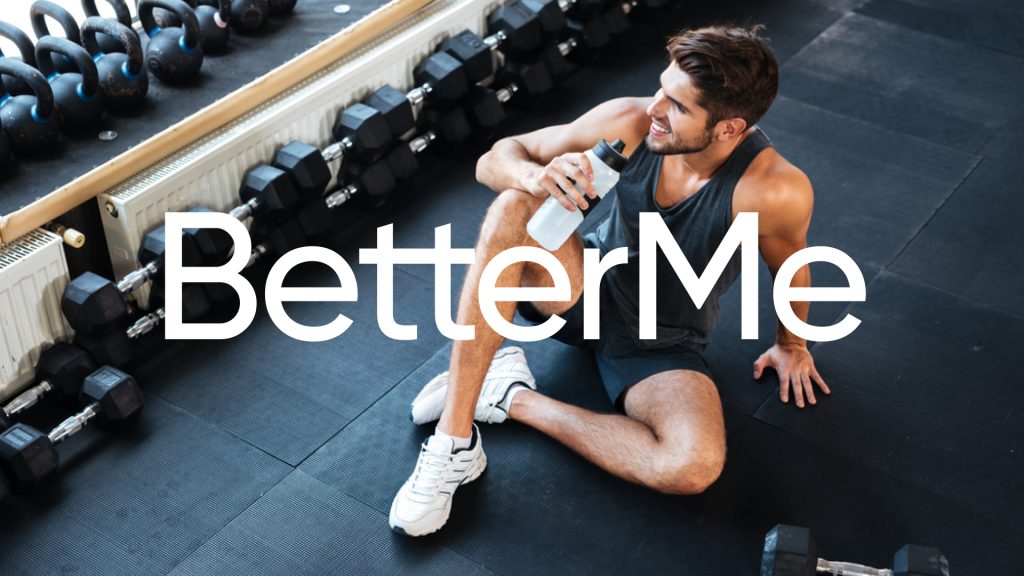
A beginner's workout should be focused on compound movements. This is so that the muscles can get more work without overworking them. Between workouts, you should allow at least 48 hours for recovery. In addition, beginners shouldn't try to work each muscle group individually. This will slow down muscle building and require more recovery time. For beginners, compound exercises work best because they target multiple muscle groups at once and can be used efficiently throughout the body.
10 best exercises for beginners
Beginners should avoid difficult moves and work on exercises that are full-body. It is also important not to overstrain your body and to stop if you start to feel any discomfort. To help your body recover from a workout, stretch it. For beginners, it is important to stretch properly after working out in order to prevent injury.
Full-body exercises can be performed without any equipment and can be done in about half an hour. These exercises are great for burning calories and fat, and can also increase your muscle stability and tensegrity. Full-body workouts make it easy to target multiple muscle types at once.
Concentrate on the complex movements
Compound movements are best for beginners. They involve movements that use more than one major muscle group. Because they engage more muscles at one time, compound moves can help you save both time and effort. Because they require coordination, good form and coordination, compound movements can be intimidating for newbies. Here are some tips to help you improve your form and learn more effective compound movements.

Carry is a great exercise for beginners. You will work all major muscle group, including the shoulders and arms. You can use dumbbells as well as a barbell. Do this exercise standing up as it is the best way for you to hit all three of your deltoid heads.
You can avoid back pain by doing full-body exercise.
If you don't know what to do, full-body exercises can be very painful for beginners. To avoid pain, it's important that you use the correct form and weights. To support your body, a bench or a wall can also serve as a support. As you lower and extend your legs slowly, try to keep your head and shoulders away from the floor. This can reduce back pain.
Upper-body exercises are good for strengthening the large muscles of your back. To avoid placing unnecessary strain on the back joints, ligaments, or muscles, it is important to use the right technique. You should always do at most six repetitions and two sets. If you have back pain, be sure to do these exercises from a semi-reclined angle.
Start with a 3-day training program
Try to do three days of complete body exercises per week in order to get the best out of your workout. This will give you enough recovery time between workouts. A split of Monday, Wednesday, and Friday is the best. With a day off in-between, it will allow you to recover. You should schedule your weekends well. Weekends are time to rest and recuperate. However, we all know that life is not always predictable, and sometimes, you may have to miss a day at the gym due to some unforeseen event. If this happens, you can simply make up the lost day.
It is essential to warm up before you begin working out. To prevent injuries and issues with form, beginner lifters should be careful not to lift too much weight. Mobility exercises, which target hips, knees, and shoulders, are also important. Be sure to correct your form, and not compare yourself with advanced lifters. You will see improvement in your form if you continue to practice.

Repetitive motion injuries can be avoided by doing full-body exercises
Full-body exercises for beginners can help you avoid repetitive motion injuries. These injuries can cause pain and interfere with your daily life. These injuries are commonly known as tendinitis or bursitis. These conditions develop when the joint become inflamed by repetitive motion exercises, overuse, or other activities. They can affect any joint, including the knee and ankle. Other examples of repetitive motion injuries include tennis elbow, runner's knee, and swimmer's shoulder.
Repetitive motion is the leading cause of RSIs. Repetitive motion is essential for many types of activities. Swimming every day can result in repetitive motion injuries. They should improve their form and strengthen the core muscles to avoid these injuries.
FAQ
What happens if I don’t get enough sleep?
Insufficient sleep can cause your brain to not receive the signals necessary for hormone regulation and other chemicals involved in controlling appetite and metabolism. In turn, this can cause you to eat more and gain weight. Overeating can also be caused by a lack of sleep.
What are cardio exercises?
Cardiovascular activities are any exercise that makes your heart work harder than normal. Jogging, swimming and rowing are just a few examples. These activities increase metabolism and burn fat. They also strengthen your heart and lungs, which makes them great ways to stay fit.
What does nutrition do to your body?
Your body functions properly when you have the right nutrition. It is important to eat a balanced diet, rich in fruits and veggies, lean proteins, whole grain, and healthy fats.
Is exercise good for me?
Yes. Regular exercise will help you to lose weight by burning extra calories. Exercise also helps keep your metabolism up, so you continue to burn calories even when you aren't exercising.
Statistics
- Globally, 28% of adults aged 18 and over were not active enough in 2016 (men 23% and women 32%). (who.int)
- An estimated 110,000 deaths per year could be prevented (cdc.gov)
- Globally, 81% of adolescents aged 11-17 years were insufficiently physically active in 2016. (who.int)
- According to the Centers for Disease Control and Prevention, chronic diseases cause 7 out of 10 deaths in the U.S., and treating chronic diseases accounts for 86% of U.S. healthcare costs. (mana.md)
External Links
How To
How to burn belly fat faster
When trying to lose weight, belly fat is often viewed as a problem. But if you think about it, Belly Fat is actually a good thing. Your organs will be protected by the amount of belly fat. Let's look at how to rapidly lose belly fat.
Lack of exercise and stress are the main reasons we store body fat. Because stress stimulates the release of cortisol hormone, it makes us hungry all the time. Cortisol can increase insulin levels in the blood. The insulin stores the excess calories as fat. A lack of sleep leads to adrenaline being released into the system which causes an increased appetite. These extra calories can be broken down by exercising.
There are many ways you can reduce belly fat. Depending on your budget, you can try each one. These are some ways to quickly lose belly fat.
-
Try to eat less food. Instead of eating three large meals per day, try to eat smaller meals. You will eat less calories in general.
-
Get plenty of water. Water flushes out toxins and keeps you hydrated. Water before each meal can help you feel fuller longer and reduce your appetite so that you don't overeat.
-
Avoid eating unhealthy snacks. If you're looking for quick fixes, snack foods like chips, cookies, candies, etc. might seem tempting. But avoid these fattening treats as they contain lots of empty calories and too much sugar. Choose healthier alternatives such as whole grains, vegetables, fruits, seeds, nuts and seeds.
-
Strength training should be performed at least 3 times per week. Strength training builds muscle mass that burns more calories, even when it is done while you rest. Strengthening your bones, muscles as well ligaments, joints, tendons, heart and lungs.
-
Regularly walk or stretch. Stretching increases flexibility and mobility. It also reduces back pain. Walking is a great way of burning calories, especially when you do it for just 30 minutes.
-
Reduce alcohol intake. Reduce alcohol intake. Alcohol is a waste of calories and has no nutritional value.
-
Lose weight gradually. The first step towards losing weight is to identify what your current weight is. Next, calculate your ideal weight by adding between 5% and 10% to your total body weight. Once you have calculated your target body weight, you can begin to cut calories by 500-1000 calories every day until your goal is reached.
-
Avoid processed foods. These foods have high amounts of salt, sugar, and preservatives. Although they are convenient, processed foods don't have enough nutrients to sustain your health.
-
Don't skip breakfast! Breakfast is good for your concentration, memory, and energy. Include protein (like eggs) and fiber, like oats, in your breakfast.
-
Have regular bowel movements. Gas and bloating can result from irregular bowel movements. You can prevent this by drinking lots of water and increasing your fiber intake.